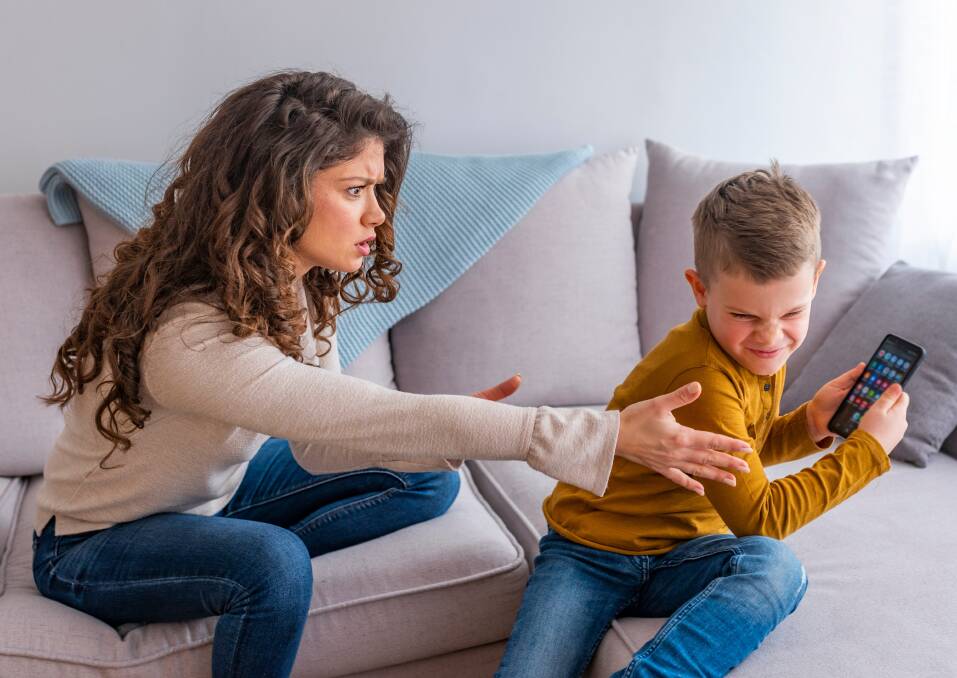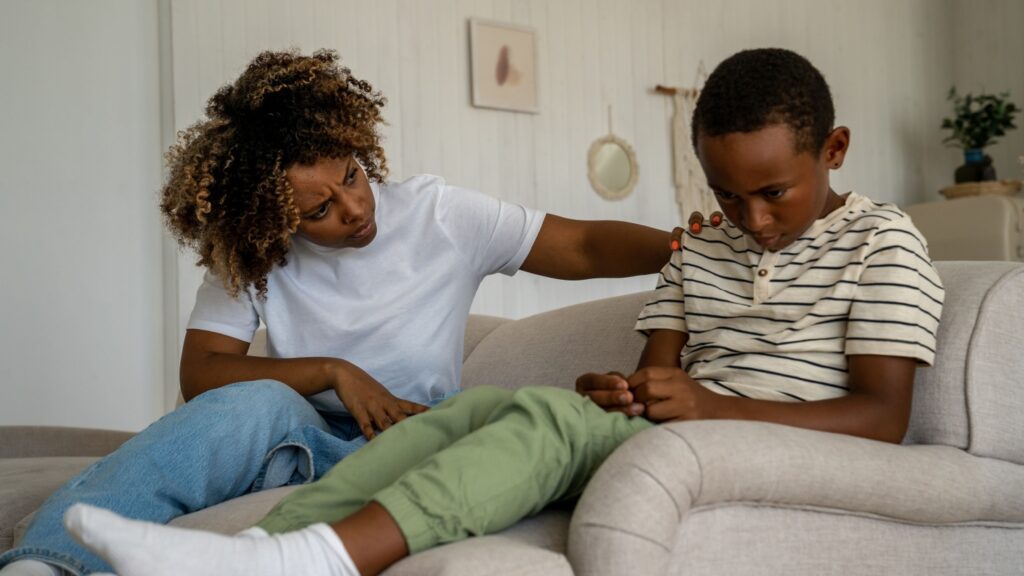Unveiling the Downside: Kids and Social Media Usage
Exploring kids’ social media use reveals a range of impacts: mental health strains, cyberbullying risks, distorted self-images, addiction concerns, privacy pitfalls, and developmental influences. It’s crucial to guide them through dangers like anxiety, cyberbullying harm, self-esteem issues, and tech overuse. By setting limits, fostering healthy habits, safeguarding privacy, and offering support, you pave the way for their well-being. Each aspect intertwines, affecting their growth and interactions. Your awareness and actions now can shape their online experiences positively.
Key Takeaways
- Excessive social media usage can harm kids’ mental health.
- Cyberbullying on social platforms can lead to emotional distress.
- Unrealistic portrayals on social media impact kids’ self-esteem.
- Screen time addiction can disrupt children’s development.
- Parental guidance is crucial in mitigating negative effects of social media on kids.
Impact on Mental Health

Regular use of social media platforms among kids can have a significant impact on their mental health, affecting their self-esteem and overall well-being. The constant exposure to curated and often unrealistic portrayals of life on social media can lead to feelings of inadequacy and low self-worth. This can result in psychological effects such as anxiety and depression, which can further exacerbate the mental well-being of children.
To combat these negative impacts on mental health, it’s vital for kids to develop healthy coping strategies. Encouraging children to limit their screen time, engage in offline activities, and build strong relationships outside of social media can help mitigate the adverse effects.
Additionally, open communication about social media use and its potential consequences is essential for fostering a supportive environment where kids feel comfortable discussing their feelings and experiences. By incorporating these coping strategies and promoting a balanced approach to social media usage, children can better safeguard their mental health and overall well-being in today’s digital age.
Cyberbullying and Harassment

You may have experienced the harmful effects of cyberbullying or harassment online.
It can have a significant impact on victims, causing emotional distress and affecting mental health.
Understanding how to report such behavior, prevent it, and being aware of the legal consequences is essential in combating this issue.
Impact on Victims
Victims of cyberbullying and harassment often experience profound emotional distress and psychological harm as a result of online attacks and intimidation. The emotional trauma inflicted on these individuals can have long-lasting effects, impacting their self-esteem, mental well-being, and overall quality of life. It’s vital for victims to receive adequate support from trusted individuals, such as family members, friends, or mental health professionals, to help them navigate through the challenging aftermath of such incidents.
One critical issue that victims often face is victim blaming, where they’re made to feel responsible for the harassment they endured. This unjustified blaming can worsen the emotional turmoil experienced by victims and deter them from seeking help. The consequences of victim blaming include increased feelings of isolation, guilt, and shame, which further exacerbate the negative impact of cyberbullying and harassment on the victim’s mental health.
It is essential to address these harmful behaviors and attitudes to create a safer online environment for everyone.
Reporting and Prevention
Addressing cyberbullying and harassment requires proactive reporting and prevention strategies to safeguard the well-being of individuals online. Parental involvement and monitoring play a pivotal role in identifying and addressing these issues early on. It’s essential for parents to educate themselves about social media platforms, privacy settings, and the signs of cyberbullying. By staying informed, parents can better support and guide their children in maneuvering the online world safely.
Educating children about cyberbullying and raising awareness about the potential dangers they may encounter online is paramount. Encourage open communication with your children so they feel comfortable discussing any concerns or incidents they may face. Teaching them about respectful online behavior and the importance of empathy can help prevent them from engaging in cyberbullying themselves.
Monitoring your child’s online activity without invading their privacy is a delicate balance that parents must maintain. Utilize parental control settings and establish clear guidelines about internet usage. By working together with your children, you can create a safe online environment and address cyberbullying and harassment effectively.
Legal Consequences
Children and adolescents engaging in cyberbullying and harassment may face serious legal consequences for their actions in the online domain. It’s important for parents to understand the legal implications and consequences associated with their children’s online behavior. Parental responsibility extends to monitoring their children’s social media activities to prevent cyberbullying incidents before they escalate into legal issues.
Cyberbullying and harassment can have lasting effects on the victims’ mental health and wellbeing. Hence, it’s essential to educate children about the legal boundaries of online behavior and the potential repercussions of their actions. By fostering open communication and setting clear guidelines, parents can help prevent their children from engaging in harmful online behavior.
In cases where cyberbullying or harassment occurs, swift action is necessary to address the situation and prevent further harm. Legal consequences for such behavior may include civil lawsuits, criminal charges, and long-term repercussions on the perpetrator’s record.
Distorted Self-Image and Esteem
As a young user moving through social media platforms, it’s vital to be aware of the potential impacts on your self-image and confidence.
Seeing influencers and peers showcasing flawless appearances and luxurious lifestyles can create a sense of inadequacy and lower self-esteem. Comparing yourself to these edited and filtered images can lead to feelings of insecurity and dissatisfaction with your own body image.
Seeking validation through likes and comments can also create a cycle of dependency on external approval for self-worth.
It’s important to remember that social media often portrays a highlight reel, not the full reality. Taking breaks from social media, practicing self-love, and building self-esteem through personal growth and achievements outside the digital world can help combat the negative effects of distorted self-image and esteem.
Addiction and Screen Time

It’s important to understand the impact excessive screen time can have on kids. By recognizing the effects of prolonged tech use, you can take steps to manage and prevent potential addiction issues.
Setting boundaries and encouraging a healthy balance between online and offline activities is key to promoting overall well-being.
Screen Time Effects
Excessive screen time can have detrimental effects on children’s mental health and overall well-being, impacting their ability to engage in meaningful real-world interactions and activities. When kids spend too much time in front of screens, it can lead to sleep disruption and attention span issues. Lack of quality sleep can affect their mood, cognitive function, and physical health, while diminished attention spans can hinder their ability to focus on tasks and learn effectively.
Moreover, extended screen time has been linked to lower academic performance and poorer social skills development in children. Excessive screen use may lead to decreased time spent on homework or engaging in extracurricular activities, ultimately affecting their educational outcomes.
Additionally, excessive screen exposure can limit face-to-face social interactions, which are essential for developing communication skills, empathy, and building relationships.
Understanding these negative impacts can help parents and caregivers establish healthier screen time limits for children, allowing for a more balanced and enriching upbringing.
Managing Tech Addiction
To address tech addiction and screen time management in children, it’s important to establish clear boundaries and guidelines early on to promote a healthy relationship with technology. Parental supervision plays a vital role in monitoring and guiding children’s tech usage. Setting limits on screen time and encouraging a balance between online and offline activities is essential for fostering healthy habits.
Creating a technology-free zone in certain areas of the house, such as the dining room or bedrooms, can help reduce the temptation to constantly be connected. It’s important to engage in open conversations with your child about the risks of excessive screen time and the benefits of other activities like physical exercise, reading, and socializing face-to-face.
Encouraging your child to participate in hobbies or sports that don’t involve screens can also aid in maintaining a healthy tech-life balance. By modeling responsible tech behavior yourself and providing consistent guidance, you can help your child develop a positive relationship with technology while minimizing the risk of addiction.
Privacy and Online Safety
Protecting your personal information and ensuring your safety while exploring the online world are essential aspects of using social media as a child. Parental monitoring plays an important role in safeguarding you from online predators. These predators often lurk in various online platforms, seeking to exploit unsuspecting children. By actively monitoring your online interactions and setting privacy settings, parents can help mitigate these risks.
Moreover, the threat of data breaches looms large in the digital landscape. Your digital footprint, consisting of the information you share online, can be exploited if proper precautions aren’t taken.
It’s essential to educate yourself on the importance of safeguarding sensitive information such as your full name, address, school details, or any other personal data that could be misused.
Influence on Behavior and Development

Being active on social media platforms can greatly influence your behavior and overall development as a child. The constant exposure to different content and interactions on social media can shape how you perceive yourself and others.
Peer pressure and social comparison play significant roles in influencing your behavior online. It’s easy to get caught up in seeking validation through likes and comments, which can impact your self-esteem and confidence.
Parental guidance is essential in helping you navigate the online world and develop healthy online etiquette. Teaching you about privacy settings, the importance of respectful communication, and how to discern reliable information from fake news is vital in shaping your behavior positively.
Encouraging open communication with parents about your online experiences can also help mitigate any negative influences social media may have on your development.
Frequently Asked Questions
How Can Parents Effectively Monitor Their Child’s Social Media Usage?
To effectively monitor your child’s social media usage, set up parental controls, regularly check privacy settings, and have open communication about online safety. By doing so, you can help protect your child in the digital world.
What Are Some Lesser-Known Risks Associated With Children Using Social Media?
When your kids use social media, be aware of the risks. Teach them cyberbullying awareness and privacy protection techniques. Warn them about online predators and promote mental health awareness. Stay vigilant and engage in open conversations.
Are There Any Positive Aspects of Social Media for Kids?
Social media offers kids opportunities for cyberbullying prevention through awareness and support. It also fosters the development of essential digital literacy skills, preparing them for the digital world ahead. Embrace these positive aspects for a well-rounded social media experience.
How Can Children Differentiate Between Real and Fake Information Online?
To distinguish between real and fake online, you must develop media literacy and critical thinking skills. Fact-check information, prioritize online safety. Stay informed about reliable sources. Trust your instincts and question what you see.
What Are Some Strategies to Help Children Balance Screen Time With Other Activities?
You should encourage kids to balance screen time with other activities. Engage in outdoor activities and family time. Encourage creative hobbies and sports involvement. It’s important for their well-being to have a mix of both digital and real-world experiences.
Conclusion
To summarize, it’s essential to recognize the potential negative effects of kids’ social media usage. From impacting mental health to exposing them to cyberbullying, the downside is real.
By being aware of these risks and taking proactive steps to monitor and guide their online activity, parents and caregivers can help mitigate the harmful effects.
It’s important to strike a balance between allowing kids to explore the digital world and protecting them from its dangers.

Chad Adan Kace, a young dad from Vermont, shares his parenting journey with a touch of humor and lots of love. Father to a lively baby, he explores the joys and challenges of fatherhood through his stories.







